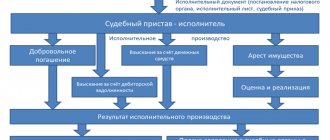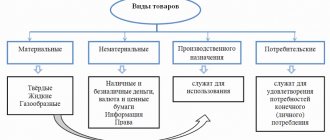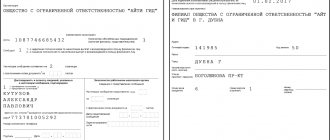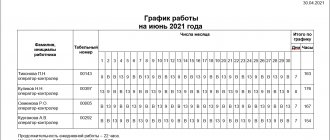What is the essence of the dispute
LLC and CJSC entered into several counter agreements with each other, including:
1. Contracts, by virtue of which:
- The LLC undertook, on the instructions of the JSC, to carry out work on installing roofs in residential buildings and to deliver the results of the work to the JSC on time;
- The CJSC undertook to accept the result of the work and pay for it on time, as well as reimburse the LLC for expenses for electricity, heat, water, including drainage, removal, placement/disposal of solid household and construction waste.
2. Supply contracts, according to which:
- The CJSC undertook to supply the LLC with construction and technical products in accordance with the LLC’s requests;
- The LLC undertook to accept and pay for supplies from the CJSC on the terms and within the terms specified in the contract.
3. Lease agreement, according to which the CJSC provided the LLC with a lease of part of the land plot for the placement of temporary non-capital facilities - the LLC's cabins.
Each of the agreements provided for the parties' liability for violation of their terms. The contract agreements established a penalty (fine) for any of the parties:
- for closed joint stock companies - for violation of payment terms;
- for LLC - for violation of deadlines for completing work or eliminating comments that arose during the commissioning of the facility, as well as a fine if violations of the terms of contracts are detected on the part of the LLC.
Similarly, supply agreements established the liability of CJSC and LLC for failure to meet deadlines for delivery and payment for construction and technical products. And the lease agreement provided for the liability of the LLC for violation of its terms, including a penalty for violation of the deadlines for making rental payments.
As a result, it was learned that the relationship between the parties was an economic complex, which included:
- provision of general contracting services;
- providing the facility with construction and other materials;
- placement of living quarters for workers;
- provision of water, heat and electricity.
And the fulfillment of the obligations of each party was aimed at achieving a single result - the creation of a construction project in accordance with the terms of the construction agreements. At the same time, each of the parties became obligated in relation to the other and could be held accountable by the other party for violations of obligations.
In the process of cooperation, the parties signed acts of offset three times, thereby paying off mutual counter homogeneous claims under supply, lease and contract agreements (including fines assessed by the CJSC against the LLC). After all the offsets, the LLC considered that the contract work was paid in arrears, and demanded that the JSC pay a penalty and interest for the use of other people's funds. The CJSC did not respond to this demand, and then the LLC filed a claim with the arbitration court of the city of St. Petersburg and the Leningrad Region.
Penalty for late repayment of debt and other violations of contract terms
Reflection of penalties in accounting at the time of their actual recognition by the debtor.
| № | Debit | Credit | Contents of operation |
| Accounting entries for the creditor organization when accruing debt for penalties, fines, penalties for collection | |||
| 1 | 76-2 | 91-1 | The amounts of fines, penalties, penalties receivable for claims made against buyers, customers, transport and other organizations are reflected as part of other income |
| 2 | 91-2 | 68 subaccount “VAT calculations” | VAT is charged on the amount of penalties for late payment, if the amounts of penalties are associated with late payment of goods, works, services sold (late payment under the contract) |
| Accounting entries from the creditor organization when reflecting the fact of receipt of amounts of penalties, fines, penalties from the debtor organization | |||
| 1 | 51, etc. | 76-2 | The debtor's debt to pay penalties, fines, and penalties to the creditor has been repaid |
| Accounting entries for the debtor organization when accruing debt for penalties, fines, and penalties for payment | |||
| 1 | 91-2 | 76-2 | The amounts of fines, penalties, penalties for payment on claims made against buyers, customers, transport and other organizations are reflected as part of other expenses |
| Accounting entries for the debtor organization when repaying the debt to the creditor for the amounts of penalties, fines, penalties for payment | |||
| 1 | 76-2 | 51, etc. | Reflects the payment of penalties, fines, and penalties to the creditor by the debtor |
Reflection in accounting of the offset of the amounts of penalties for violation of the terms of delivery of goods (performance of work, provision of services) stipulated by the contract when repaying the debt to the supplier (contractor).
| № | Debit | Credit | Contents of operation |
| Accounting entries from the purchasing organization (customer) | |||
| 1 | 76-2 | 91-1 | Penalties accrued for violation of the terms of delivery of goods (performance of work, provision of services) stipulated by the contract |
| 2 | 60, 76 | 76-2 | The amount of penalties due to the buyer (customer) is offset against the debt to the supplier (contractor) |
| 3 | 60, 76 | 51 | Payment was transferred to the supplier (contractor) minus accrued penalties |
| Accounting entries for the supplier (contractor) organization | |||
| 1 | 91-2 | 76-2 | Penalties have been accrued for violation of the terms of delivery of goods (performance of work, provision of services) stipulated by the contract |
| 2 | 76-2 | 62, 76 | The amount of penalties due to the buyer (customer) is offset against the repayment of his debt |
| 3 | 51 | 62, 76 | Payment received from the buyer (customer) minus accrued penalties |
Reflection in accounting of a claim brought by a foreign organization against a Russian organization for late payment for goods in the form of penalties. The Russian Federation does not have an agreement on the avoidance of double taxation with the foreign state in which the representative office of this foreign organization is located.
| № | Debit | Credit | Contents of operation |
| Accounting entries at the time the claim is made | |||
| 1 | 91-2 | 76 subaccount “Settlements for claims in foreign currency” | The accrual of penalties for violation of contractual obligations is reflected simultaneously in the currency of settlements and in the ruble equivalent (RUB/equivalent) at the rate of the Central Bank of the Russian Federation on the date of filing the claim (transaction in foreign currency) |
| Accounting entries at the end of the reporting period | |||
| 1 | 76 subaccount “Settlements for claims in foreign currency” | 91-1 | A positive exchange rate difference is reflected in the composition of the organization’s other income when revaluing accounts payable for penalties expressed in foreign currency at the exchange rate of the Central Bank of the Russian Federation as of the reporting date of the financial statements or |
| 91-2 | 76 subaccount “Settlements for claims in foreign currency” | A negative exchange rate difference is reflected in the composition of other expenses of the organization when revaluing accounts payable for penalties, expressed in foreign currency at the exchange rate of the Central Bank of the Russian Federation as of the reporting date of the financial statements | |
| Accounting entries at the time of payment | |||
| 1 | 76 subaccount “Settlements for claims in foreign currency” | 52-1 | The payment of penalties to a foreign organization from a current foreign currency account is reflected simultaneously in the currency of settlements and in the ruble equivalent (RUB/equivalent) at the rate of the Central Bank of the Russian Federation on the date of repayment of the debt (actual transfer of payment) |
| 2 | 76 subaccount “Settlements for claims in foreign currency” | 68 | The withholding of tax on the income of foreign organizations is reflected simultaneously in the currency of settlements and in the ruble equivalent (RUB/equivalent) at the rate of the Central Bank of the Russian Federation on the date of debt repayment (actual transfer of payment) |
| 3 | 76 sub-account “Settlements for claims in foreign currency”91-2 | 91-176 subaccount “Settlements for claims in foreign currency” | The positive exchange rate difference on account 76 is reflected at the rate of the Central Bank of the Russian Federation from the moment the accounts payable for penalties payable (or the date of the last revaluation) until the debt is repaid from the current currency account or The negative exchange rate difference on account 76 is reflected at the rate of the Central Bank of the Russian Federation from the moment of occurrence accounts payable for penalties payable (or the date of the last revaluation), until the debt is repaid from the current foreign currency account |
| 4 | 68 | 52-1 | The transfer of tax to the budget is reflected simultaneously in the currency of settlement and in the ruble equivalent (RUB/equivalent) at the rate of the Central Bank of the Russian Federation on the date of repayment of the debt (actual transfer of payment) |
Reflection in accounting of the payment of a fine by a Russian organization to a foreign organization for violation of customer requirements during the execution of a contract. According to the terms of the agreement, in case of failure to pay the fine on time, penalties will be charged for each day of delay in payment of the fine.
| № | Debit | Credit | Contents of operation |
| Accounting entries at the time of filing a claim by a foreign organization | |||
| 1 | 91-2 | 76 subaccount “Settlements for claims in foreign currency” | The amount of the fine for violation of contractual obligations is reflected simultaneously in the currency of settlement and in the ruble equivalent (RUB/equivalent) at the exchange rate of the Central Bank of the Russian Federation on the date of filing the claim (transaction in foreign currency) |
| Accounting entries at the end of the reporting period | |||
| 1 | 76 subaccount “Settlements for claims in foreign currency” | 91-1 | A positive exchange rate difference is reflected in the composition of the organization’s other income when revaluing accounts payable for a fine, expressed in foreign currency at the exchange rate of the Central Bank of the Russian Federation as of the reporting date of the financial statements or |
| 91-2 | 76 subaccount “Settlements for claims in foreign currency” | A negative exchange rate difference is reflected in the composition of other expenses of the organization when revaluing accounts payable for a fine, expressed in foreign currency at the exchange rate of the Central Bank of the Russian Federation as of the reporting date of the financial statements | |
| Accounting entries at the time of debt repayment by a Russian organization upon payment of fines and penalties | |||
| 1 | 91-2 | 76 subaccount “Settlements for claims in foreign currency” | The amount of the penalty for failure to pay the fine on time is reflected simultaneously in the currency of settlement and in the ruble equivalent (RUB/equivalent) at the rate of the Central Bank of the Russian Federation on the date of payment of the fine and penalty (transaction in foreign currency) |
| 2 | 76 subaccount “Settlements for claims in foreign currency” | 52-1 | The amount of payment of fines and penalties to a foreign organization from a current foreign currency account is reflected simultaneously in the currency of settlement and in the ruble equivalent (RUB/equivalent) at the rate of the Central Bank of the Russian Federation on the date of payment of the fine and penalties (actual transfer of payment) |
| 3 | 76 subaccount “Settlements for claims in foreign currency” | 91-1 | The positive exchange rate difference on account 76 is reflected at the rate of the Central Bank of the Russian Federation from the moment the accounts payable for the fine to be paid (or the date of the last revaluation) until the moment the fine and penalties are paid from the current foreign currency account or |
| 91-2 | 76 subaccount “Settlements for claims in foreign currency” | The negative exchange rate difference on account 76 is reflected at the exchange rate of the Central Bank of the Russian Federation from the moment the accounts payable for the fine to be paid (or the date of the last revaluation) until the moment the fine and penalties are paid from the current foreign currency account | |
Reflection in accounting of the debtor organization's refusal to satisfy the claim. The court supported the debtor's position.
| № | Debit | Credit | Contents of operation |
| 1 | 91-2 | 76-2 | The amount of the claim, the collection of which was refused by the court, was written off at the expense of the organization’s own funds |
Arbitration, appeal and cassation
By decision dated March 10, 2020, in case No. A56-125654/2018, the Arbitration Court of the city of St. Petersburg and the Leningrad Region satisfied the claims of the LLC to collect a penalty from the CJSC for late payment for work performed. The court assessed the duration of the failure to fulfill contractual obligations, read the LLC’s calculations and came to the conclusion that the LLC’s claim was satisfied in the declared amount.
The CJSC was not helped either by the counter-calculation of interest, or by the arguments that the calculation of the LLC was made without taking into account the terms of the contracts, according to which the occurrence of the obligation to pay for the work is calculated not from the date the LLC drew up the KS-2 act, but from the date the CJSC signed the KS-2 act. In making its decision, the court proceeded from the fact that:
- the fact of carrying out the controversial work has been proven by the LLC;
- The company violated the terms of payment established by the contracts;
- there are grounds for collecting a penalty from the CJSC;
- there are no grounds for reducing the penalty on the basis of Article 333 of the Civil Code of the Russian Federation.
The Thirteenth Arbitration Court of Appeal came to the same conclusions in its ruling dated 06/04/2020 No. 13AP-11705/2020, and then by the Arbitration Court of the North-Western District in its ruling dated 08/26/2020 No. F07-9046/2020.
Deduction of penalties from the cost of work under the contract
When performing contract work, situations arise when the Customer pays for the work performed, withholding penalties and penalties for violation of obligations from the contract amount that has not yet been paid, for example, for late construction and installation work.
Legal entities and citizens are free to determine the terms of agreements. The Civil Code gives us freedom to determine the terms of the contract. Thus, the customer and the contractor must agree on the terms of completion and payment for the work, determine the amount of the penalty for late fulfillment of obligations, and so on. Agreements must be fulfilled by both parties as required by law, legal acts or business customs. Waiver of obligations or change of contract terms unilaterally in most cases is not allowed.
If the estimated cost of the work has not yet been paid, and the time for fulfilling the obligations has expired, then the customer under the construction contract does not have the right to demand a penalty from the contractor (hence, the accrual of penalties).
At the same time, the parties have the right to provide in the contract for the procedure for withholding penalties by the customer in the event of a violation of obligations by the contractor. And if the out-of-court procedure for withholding the penalty is agreed upon by the parties, then this will be considered legal.
Citizens and legal entities can draw up the terms of the contract at their own discretion: determine the timing of work and payment, their cost, determine penalties in case of violation of obligations. Article 421 of the Civil Code of the Russian Federation provides freedom of contract, with the exception of those contents of the conditions that are prescribed by legal acts or law. In such cases, the collection of penalties for unfulfilled obligations is the prerogative of only the court.
But how then to qualify such a withholding of penalties, since offset is possible only with counter-claims of the same type? And a penalty cannot be the same as a requirement with an obligation to pay for work performed.
According to Art. 410 of the Civil Code of the Russian Federation, offset, as an action to terminate obligations, is a unilateral transaction. There is a duality here due to the following definition: to carry out such a transaction, it is necessary that the parties’ demands be counter-claims, but it is enough for one party to set off. As stated earlier, unilateral refusal of obligations or changes in the terms of the contract are not permitted. And termination of obligations without the consent of the other party is a refusal.
The courts use this uncertainty in favor of the customer as a basis for terminating his obligations under the contract. It turns out that the customer now has the right not to pay for the work performed in order to withhold late fees, and the courts are rejecting the contractors’ claims.
The following can be said in favor of the contractor: if the requirements are heterogeneous, then offset under Article 410 of the Civil Code of the Russian Federation is not possible for the customer. You can appeal a dispute over a rejected claim to a higher authority by referring to examples of decisions of the Presidium on the cancellation of judicial acts on the collection of penalties and sending cases for review to the court of first instance: Supreme Arbitration Court of the Russian Federation dated July 10, 2012 No. 2241/12 in case No. A33-7136/2011 and the Supreme Arbitration Court of the Russian Federation dated June 19, 2012 No. 1394/12 in case No. A53-26030/2010.
Judicial Collegium of the RF Armed Forces
By ruling dated 02.02.2021 No. 307-ES20-16551, the Judicial Collegium for Economic Disputes of the Supreme Court of the Russian Federation overturned the decisions of the lower courts and sent the case for a new trial to the Arbitration Court of St. Petersburg and the Leningrad Region. The judges noted that the main thing was not examined - at what point the obligations of the parties became capable of offset, that is, when the conditions for terminating the obligations by offset arose. After all, obligations are considered terminated by offset from the moment the deadline for fulfillment of that obligation, the deadline for which came later, comes due. And without an analysis of these facts, it cannot be considered justified to conclude that the company violated contractual obligations and delayed payment for contract work.





